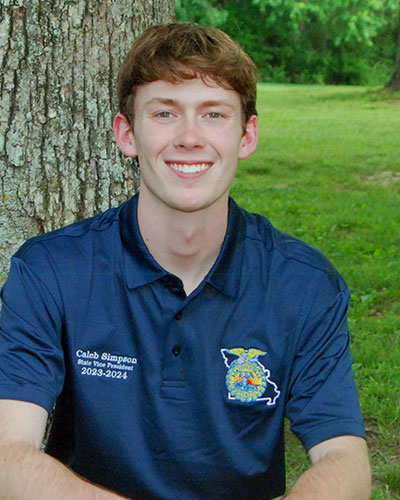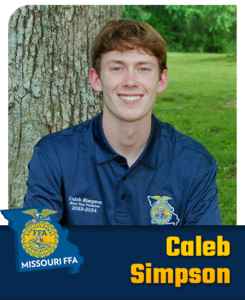
Me As An SAE

Why does every FFA member already know the secrets to personal growth?
How could it be that every FFA member already has, somewhere inside of them, all the knowledge needed for personal growth? While there are certainly a nearly infinite number of self-help books, podcasts, or TikToks fighting desperately for what last scraps of cash and/or attention we have left, creating a better world for ourselves—both inside and out—lies within the hands and minds of every FFA member.
Why is that?
As FFA members, we subscribe to the trifecta philosophy of the “Three Circle Model” that makes up agricultural education. For most, the idea of having classroom instruction, FFA involvement, and an ever-improving SAE is familiar territory that has been experienced firsthand. In my mind, the core tenets of any self-improvement that students wish to make can be seen in how they improve their SAE.
As we create an SAE and watch it grow a life of its own, many of us ask ourselves: how can I make this thing better? Oftentimes this seemingly innocent question quickly becomes difficult to answer. A lack of funding, time, or space can all be major roadblocks to improving our project—just as they can be to improving ourselves.
While both are incredibly frustrating, many FFA members over the years have discovered three questions that have led them to overcoming these obstacles—in projects and in life:
- What do I need to keep doing?
- What can I do better at?
- What do I need to stop doing?
For the first of these, it is essential that no matter what growth we want to see as people—such as learning to become a better speaker, building better relationships, or reducing day-to-day anxieties—we should first pat ourselves on the back for what we are doing well. Using our example of speaking, don’t let yourself get down over a speech that runs too long while overlooking the positive tone of your voice during that time.
You have to start somewhere. Start by acknowledging the things that are working so far.
Second, we can build off of what we do well by identifying the things that we could do better at. This is the time when we can start to be gently critical of ourselves. Someone looking to create a more meaningful relationship with a person or group might find him or herself noticing that they aren’t the quickest to reply to texts or emails, which could be leading to their weakened relationship. By identifying the essential things that they are already doing that could be done better, this person can commit to a solution—easily bettering themselves in the process.
Our final question for ourselves is often the hardest: what do I need to stop doing?
Whenever we go to better ourselves, most of our actions are done with the best intentions; however, at a certain point, it is only rational to acknowledge that some of these aren’t working. As much as we wish and pray otherwise, we are limited to only 24 hours in a day. Our time, our mental and physical resources are all finite, and we need to be able to allocate them in the best way possible. Just as someone who invests money into an unprofitable part of an entrepreneurship SAE is most likely wasting their efforts, so too can our self-improvement efforts be better targeted. If you are someone who is trying to gain muscle in the gym and doing the same exercise day after day without results, the rational thing to do is to stop doing that exercise. By finding what efforts may be less effective, we free up our valuable time to work on ourselves in another way.
Altogether, these three questions can serve as guides to us, not only to produce premier projects, but to catapult ourselves forward into the best teammates, friends, and bright-minded individuals that we were born to be.




